#War on American Soil
Quote
STFU Heavenly Archangel [HA = HARRELL] SATAN!!!


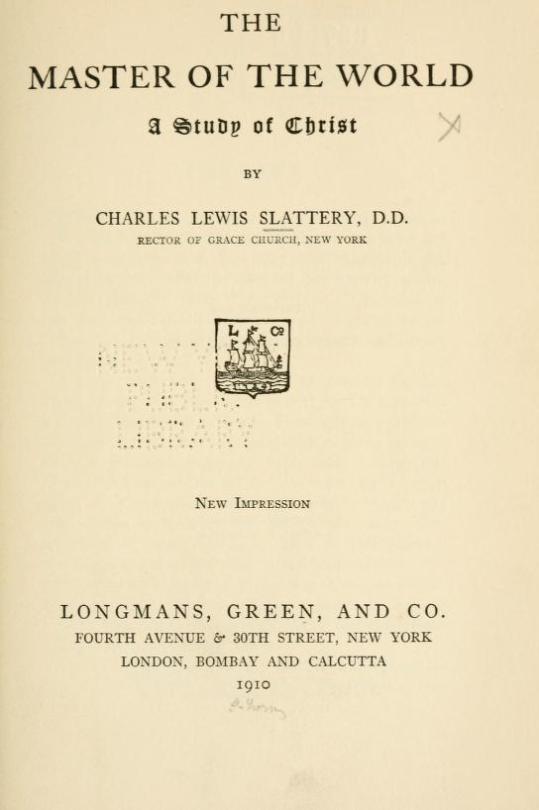


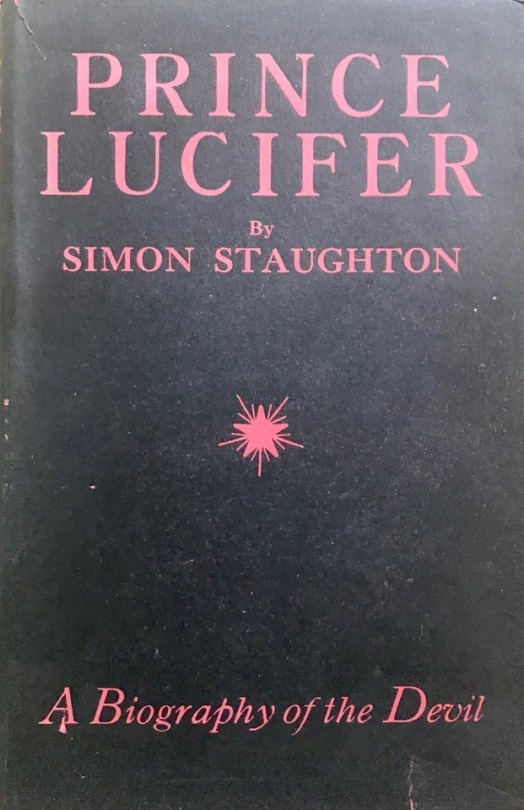
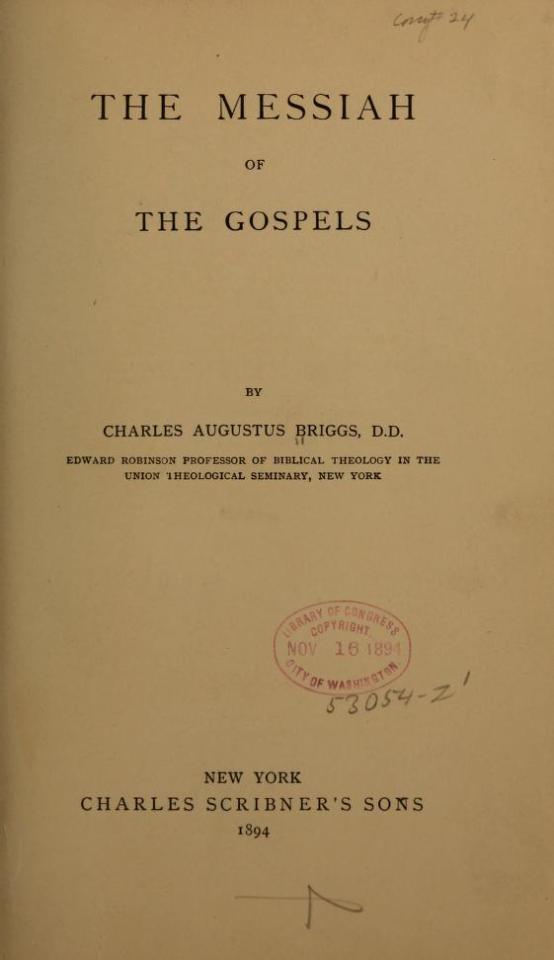

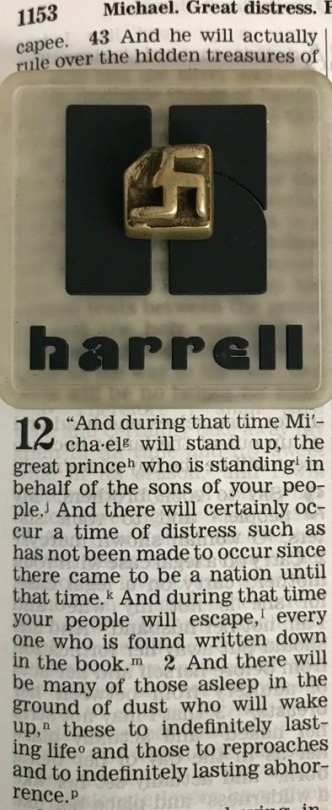



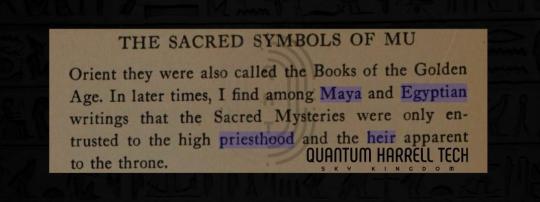

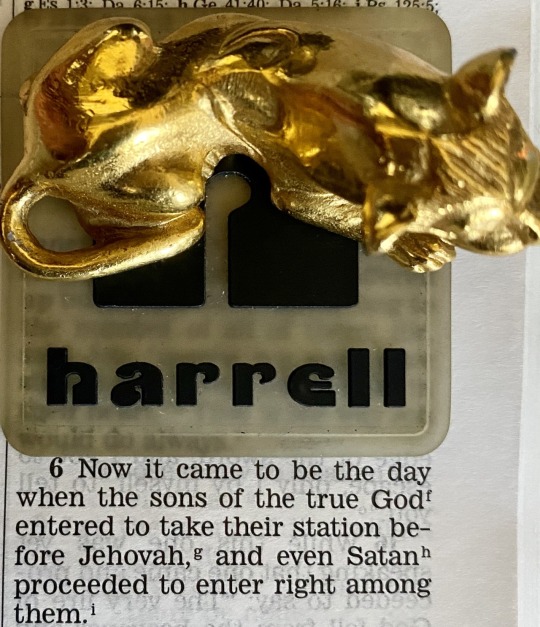


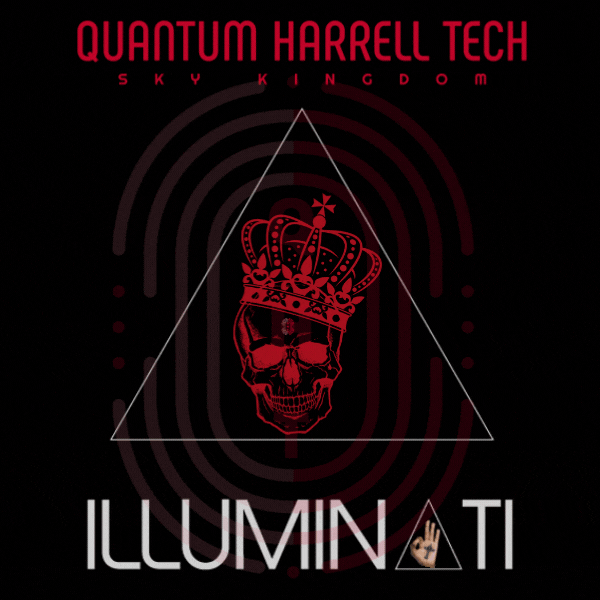
2 notes
·
View notes
Quote
The land called miracle is the daughter you never died for and she
stands at the edge of the bed with her slim hand
against your cheek.
Joy Harjo, In Mad Love and War; “Healing Animal”
29 notes
·
View notes
Text
what a triumph of storytelling every mcr song and album is... for example, mama is so emotionally true to its core that you can interpret it endlessly. first few times i heard it, i didnt even register the war theme -- i thought the story was of a man and his mother fighting about his sexual deviancy. yes i heard "but there's shit that ive done with this fuck of a gun" but i didn't even CONCIEVE that he was talking about an actual gun. "genitalia" is synonymous with the noun "sex" whose verb form is synonymous with "fuck". and dicks are vaguely gun-shaped. so i thought the Fuck of a Gun was his literal sex!
i think i was also subconsciously thinking about bohemian rhapsody. some analysis i read a long time ago described "mama, just killed a man / put a gun against his head / pulled the trigger now he's dead" as an allegory for a blowjob.
a lot going on with this one lyric
#there's this angle and the war angle and the mental illness angle and the trans angle of course#even within a 'war' there's diff interpretations. outside of existing wars or the general Idea of a war i had a thought that black parade-#-could be set during a war on american soil#burn pits.. cancer..#mcr#mcr music analysis
14 notes
·
View notes
Text

Heartbreaking: The Worst Person You Know Just Made A Great Point
Captain America: Sentinel Of Liberty #10
#not the leash part but obviously who is ultimately responsible for young dead Americans on foreign soil#and young dead foreigners killed at the hands of young Americans#so war essentially#suits and politicians are responsible#fuck them truly and whole heartedly#and their wack ass mind games they play with young minds#to get them to commit atrocities on foreign land#Captain America: Sentinel of Liberty#comic spoilers#sentinel of Liberty spoilers#Captain America#Nick fury#in the quiver (queue)
2 notes
·
View notes
Text
Holy shit, an active duty American soldier set himself on fire in front of the Israeli embassy in Washington DC. Before he set himself on fire he introduced himself as "an active duty member of the U.S. Airforce I will no longer be complicit in genocide." Then repeated "free Palestine" while he was on fire. He did it while wearing his duty uniform too. There is footage of the act. I don't know how I feel about posting images of a man's self-immolation but it's such an unprecedented action to be almost unbelievable without visual evidence. Even with the several self-immolations that occurred on American soil during the Vietnam and Iraq wars, I don't think I can point to one undertaken by an active duty soldier. I will instead link to the Twitter post where it was first made public under the "more" cut below. It goes without saying that the image is graphic.
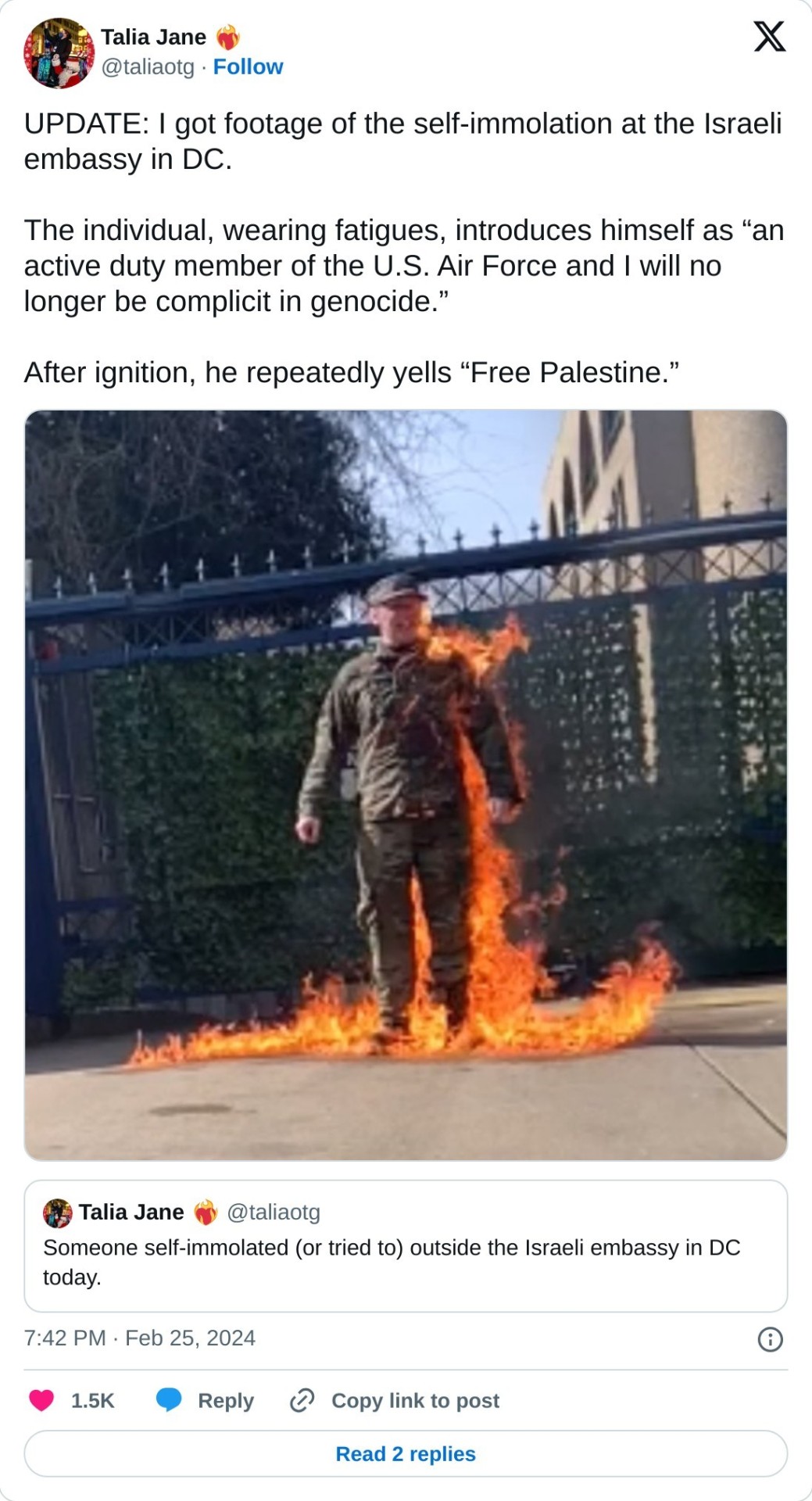
32K notes
·
View notes
Note
I'm asking this genuinely, as a 19 yo with no education in economics and a pretty surface level understanding of socialism: can you explain the whole Bananas discourse in a way someone like me might understand? In my understanding it's just "This is just a product we can give up to create better worker conditions and that's fine" but apparently that's not the full picture?
alright so some pretty important background to all this is that we're all talking about the fact that bananas, grown in the global south, are available year-round at extremely low prices all around europe and the USA. it's not really about bananas per so--the banana in this discourse is a synechdoche for all the economic benefits of imperialism.
so how are cheap bananas a result of imperialism? first of all i want to tackle a common and v. silly counterargument: 'oh, these ridiculous communists think it's imperialist for produce to be shipped internationally'. nah. believing that this is the communist objection requires believing in a deeply naive view of international traide. this view goes something like 'well, if honduras has lots of bananas, and people in the usa want bananas and are willing to pay for them, surely everyone wins when the usa buys bananas!'.
there are of course two key errors here and they are both packed into 'honduras has lots of bananas'. for a start, although the bananas are grown in honduras, honduras doesn't really 'have' them, because the plantations are mostly owned by chiquita (formerly known as united fruit) dole, del monte, and other multinationals--when they're not, those multinationals will usually purchase the bananas from honduran growers and conduct the export themselves. and wouldn't you know it, it's those intervening middleman steps--export, import, and retail, where the vast majority of money is made off bananas! so in the process of a banana making its way from honduras to a 7/11, usamerican multinationals make money selling the bananas to usamerican importers who make money selling them to usamerican retailers who make money selling them to usamerican customers.
when chiquita sells a banana to be sold in walmart, a magic trick is being performed: a banana is disappearing from honduras, and yet somehow an american company is paying a second american company for it! this is economic imperialism, the usamerican multinational extracting resources from a nation while simultaneously pocketing the value of those resources.
why does the honduran government allow this? if selling bananas is such a bad deal for the nation, why do they continue to export millions of dollars of banans a year? well, obviously, there's the fact that if they didn't, they would face a coup. the united states is more than willing to intervene and cause mass death and war to protect the profits of its multinationals. but the second, more subtle thing keeping honduras bound to this ridiculously unbalanced relationship is the need for dollars. because the US dollar is the global reserve currency, and the de facto currency of international trade, exporting to the USA is a basic necessity for nations like honduras, guatemala, &c. why is the dollar the global reserve currency? because of usamerican military and economic hegemony, of course. imperialism built upon imperialism!
this is unequal exchange, the neoimperialist terms of international trade that make the 'global economy' a tool of siphoning value and resources from the global south to the imperial core. & this is the second flaw to unravel in 'honduras has a lot of bananas' -- honduras only 'has a lot of bananas' because this global economic hegemony has led to vast unsustainable monoculture banana plantations to dominate the agriculture of honduras. it's long-attested how monoculture growth is unsustainable because it destroys soil and leads to easily-wiped-out-by-infection plants.
so, bananas in the USA are cheap because:
the workers that grow them are barely paid, mistreated, prevented from unionizing, and sometimes murdered
the nations in which the bananas are grown accept brutally unfair trade and tariff terms with the USA because they desperately need a supply of US dollars and so have little position to negotiate
shipping is also much cheaper than it should be because sailors are chronically underpaid and often not paid at all or forced to pay to work (!)
bananas are cheap, in conclusion, because they're produced by underpaid and brutalized workers and then imported on extortionate and unfair terms.
so what, should we all give up bananas? no, and it's a sign of total lack of understanding of socialism as a global movement that all the pearl-clutching usamericans have latched onto the scary communists telling them to stop buying bananas. communism does not care about you as a consumer. individual consumptive choices are not a meaningful arena of political action. the socialist position is not "if there was a socialist reovlution in the usa, we would all stop eating bananas like good little boys", but rather, "if there's a socialist revolution in the countries where bananas are grown, then the availability of bananas in the usa is going to drop, and if you want to be an anti-imperialist in the imperial core you have to accept that".
(this is where the second argument i see about this, 'oh what are you catholic you want me to eat dirt like a monk?' reveals itself as a silly fucking solipsistic misunderstanding)
and again, let's note that the case of the banana can very easily be generalised out to coffee, chocolate, sugar, etc, and that it's not about individual consumptive habits, but about global economic systems. if you are donkey fucking kong and you eat 100 bananas a day i don't care and neither does anyone else. it's about trying to illustrate just one tiny mundane way in which economic imperialism makes the lives of people in the global north more convenient and simpler and so of course there is enormous pushback from people who attach moral value to this and therefore feel like the mean commies are personally calling them evil for eating a nutella or whatever which is frankly pretty tiring. Sad!
tldr: it is not imperialism when produce go on boat but it is imperialism when produce grown for dirt cheap by underpaid workers in a country with a devalued currency is then bought and exported and sold by usamerican companies creating huge amounts of economic value of which the nation in which the banana was grown, let alone the people who actually fucking grew it, don't see a cent -- and this is the engine behind the cheap, available-every-day-all-year-everywhere presence of bananas in the usa (and other places!)
8K notes
·
View notes
Text
Tried constructing a founding-era equivalent to the cases of al-Nashiri and the 9/11 defendants to try to see if there's a case against them having speedy trial rights but I just got sad instead.
#its actually kinda tough crafting the hypo right; ended up settling on a spanish rabblerouser with some followers (like a successful#filibusterer or warlord) being charged with conspiring to instigate a massacre of americans on american soil#you have to dodge the law of war and you need a proper hook for both apprehension and charging#so the barbary coast wars are out and you also need some level of estrangement of the charged from their home country to avoid#both law of nations issues wrt personal jurisdiction (i think) and also 'this should be settled through diplomacy' (so...law of nations? :p#god. a world where the law of nations wasnt just kissingers used toilet paper. what an amazing world thatd be#instead we have 'thats why its covert ... go grab his ass'
1 note
·
View note
Text
while everyone's rightfully talking about oppenheimer and its flaws regarding the erasure of japanese and native american voices regarding nuclear testing and detonations, i'd like to bring up the fact that pacific islanders have also been severely impacted by nuclear testing under the pacific proving grounds, a name given by the US to a number of sites in the pacific that were designated for testing nuclear weapons after the second world war, at least 318 of which were dropped on our ancestral homes and people. i would like if more people talked about this.
important sections are bolded for ease of reading. i would appreciate this being reblogged since it's a bit alarming how few people know about this.
--
in 1946, the indigenous peoples of pikinni (the bikini atoll) were forcibly relocated off of their islands so that nuclear tests could be run on the atoll. at least 23 nuclear bombs were detonated on this inhabited island chain, including 20 hydrogen bombs. many pasifika were irreversibly irradiated, all of them were starved during multiple forced relocations, and the island chain is still unsafe to live on despite multiple cleanup attempts. there are several craters visible from space that were left on the atoll from nuclear testing.
the forced relocation was to several different small and previously uninhabited islands over several decades, none of which were able to sustain traditional lifestyles which directly lead to further starvation and loss of culture and identity. there is a reason that pacific islanders choose specific islands to inhabit including access to fresh water, food, shelter, cloth and fibre, climate, etc. and obviously none of these reasons were taken into account during the displacements.
200 pikinni were eventually moved back to the atoll in the 1970s but dangerous levels of strontium-90 were found in drinking water in 1978 and the inhabitants were found to have abnormally high levels of caesium-137 in their bodies.
--
i'm going to put the rest of this post under a readmore to improve the chances of this being reblogged by the general public. i would recommend you read the entirety of the post since it really isn't long and goes into detail about, say, entire islands being fully, utterly destroyed. like, wiped off of the map. without exaggeration, entire islands were disintegrated.
--
as i just mentioned, ānewetak (the eniwetok atoll) was bombed so violently that an entire island, āllokļap, was permanently and completely destroyed. an entire island. it's just GONE. the world's first hydrogen bomb was tested on this island. the crater is visibly larger than any of the islands next to it, more than a mile in diameter and roughly fifteen storeys deep. the hydrogen bomb released roughly 700 times the energy released during the bombing of hiroshima. this would, of course, be later outdone by other hydrogen bombs dropped on the pacific, reaching over 1000 times the energy released.
one attempt to clean up the waste on ānewetak was the construction of a large ~380ft dome, colloquially known as the tomb, on runit island. the island has been essentially turned into a nuclear waste dump where several other islands of ānewetak have moved irradiated soil to and, due to climate change, rising seawater is beginning to seep into the dome, causing nuclear waste to leak out. along with this, if a large typhoon were to hit the dome, there would be a catastrophic failure followed by a leak of nuclear waste into the surrounding land, drinking water, and ocean. the tomb was built haphazardly and quickly to cut costs.
hey, though, there's a plus side! the water in the lagoon and the soil surrounding the tomb is far more radioactive than the currently contained radioactive waste. a typhoon wouldn't cause (much) worse irradiation than the locals and ocean already currently experience, anyway! it's already gone to shit! and who cares, right, the only ""concern"" is that it will just further poison the drinking water of the locals with radioactive materials. this can just be handwaved off as a nonissue, i guess. /s
--
at least 36 bombs were detonated in the general vicinity of kiritimati (christmas island) and johnson atoll. while johnson atoll has seemingly never been inhabited by polynesians, kiritimati was used intermittently by polynesians (and later on, micronesians) for several hundred years. many islands in the pacific were inhabited seasonally and likewise many pacific islanders should be classified as nomadic but it has always been convenient for the goal of white supremacy and imperalism to claim that semi-inhabited areas are completely uninhabited, claimable pieces of terra nullius.
regardless of the current lack of inhabitants on these islands, the nuclear detonations have caused widespread ecological damage to otherwise delicate island ecosystems and have further spread nuclear fallout across the entirety of the pacific ocean.
--
while the marshall islands, micronesia, and the surrounding areas of melanesia and polynesia were (and still are) by far the worst affected by these atrocities, the entirety of the pacific has been irradiated to some extent due to ocean/wind currents freely spreading nuclear fallout through the water and air. all in all, at least 318 nuclear bombs were detonated across the pacific. i say "at least" because these are just the events that have been declassified and frankly? i wouldn't be shocked to find out they didn't stop there.
please don't leave the atomic destruction of the pacific out of this conversation. we've been displaced, irradiated, murdered, poisoned, and otherwise mass exterminated by nuclear testing on purpose and we are still suffering because of it. many of us have radiation poisoning, many of us have no safe ancestral home anymore. i cannot fucking state this enough, ISLANDS WERE DISINTEGRATED INTO NONEXISTENCE.
look, this isn't blaming people for not talking about us or knowing the extent of these issues, but it's... insidiously ironic that i haven't seen a single post that even mentions pacific islanders in a conversation about indigenous voices/voices of colour being ignored when it comes to nuclear tests and the devastation they've caused.
#ask to tag. i understand this is heavy and i've tried to tag accordingly#oppenheimer#oppenheimer 2023#pasifika#micronesian#melanesian#polynesian#pacific islands#indigenous#pacific ocean#pacific proving grounds#racism#imperialism#genocide#nuclear weapons#indigenous genocide#nuclear#nuclear bomb#us imperialism#displacement#nuclear imperialism
5K notes
·
View notes
Text
Researching herbicide resistance in weeds.
A decade ago, everyone said rotating applications of different herbicides was key to stopping herbicide resistance.
Then, around 2015, evidence from a large study emerged saying that this actually causes weeds to be MORE resistant, so the best thing to do is to spray a combination of multiple herbicides mixed together at once.
Now that is being called into question too. Whoda thunk it...
Herbicide resistance among weeds is only getting stronger. Recently, scientists found an annual bluegrass (Poa annua) on a golf course that was resistant to seven herbicide modes of action at once. Seven. SEVEN. Amaranth plants been found with resistance to six herbicide modes of action at once. Twenty years ago, the narrative was that resistance to glyphosate (Roundup) was unlikely to become widespread; today it's the second-most common type of resistance.
What's more, plants are developing types of herbicide resistance that are effective against multiple herbicides at once and harder to detect. Instead of changing the chemical processes within them that are affected by the herbicides so the herbicides don't work as well, they're changing the way they absorb chemicals in the first place. Resistant plants are producing enzymes that detoxify the herbicides before they even enter the plants' cells.
It took Monsanto ten years to develop crop varieties resistant to Dicamba (after weeds made 'Roundup Ready' crops pointless). Palmer amaranth evolved Dicamba resistance in five years.
So I asked, "Why are all the proposed solutions dependent on using more herbicides, when we know damn well that this is going to do nothing but make the weeds evolve faster?"
The answer is that chemical companies have the world in a death grip. They can't make money off non-chemical solutions, so chemical solutions get all the funding, research, and outreach to farmers.
But why do chemical companies have so much power?
One of the biggest reasons is the U.S. military.
In the Vietnam war, all of Vietnam was sprayed with toxic herbicides like Agent Orange, which was incredibly toxic to humans and affected the Vietnamese population with horrible illnesses and birth defects. Monsanto, the company that made the herbicides, knew that it did this, but didn't tell anyone. The US government didn't admit that they'd poisoned humans on a mass scale until Vietnam veterans started dying and coming down with horrible illnesses, and even then, it took them 40 years. (My Papaw died at 60 because of that stuff.) And the soldiers weren't there for very long. As for the Vietnamese people, the soil and water where they live is contaminated.
Similarly, during the "war on drugs," the US military sprayed Roundup and other chemicals on fields to destroy coca plants and other plants used in the manufacturing of drugs. This killed a lot of crops that farmers needed to live, and caused major health problems in places such as Columbia. The US government said that people getting sick were lying and that Roundup was just as safe as table salt. (A statement that did not age well.)
So chemical companies make money off arming the USA military. The American lawn care industry, and the agricultural system, therefore originates in more than one way from the United States's war-mongering.
The other major way is described in this article (which I highly recommend), which describes how after WW2, chemical plants used for manufacturing explosives were changed into fertilizer producing plants, but chemical companies couldn't market all that fertilizer to farmers, so they invented the lawn care industry. No exaggeration, that's literally what happened.
This really changes my perspective on all the writings about fixing the agricultural system. The resources are biased towards the use of chemicals in agriculture because the companies are so powerful as to make outreach and research for non-chemical methods of agriculture really hard to fund. All the funding is in finding new ways to spray chemicals or spraying slightly different chemicals, because that's what you can actually get ahold of money to look into. It is like the research has to negotiate a truce with the chemical companies, suggesting only solutions that won't cause lower profits.
Meanwhile my respect for Amaranth is skyrocketing.
Who would win: The USA military-industrial complex or one leafy boi
4K notes
·
View notes
Note
Your fics are amazing! Would you ever write about König?
𝐂𝐑𝐘𝐏𝐓𝐈𝐃 — 𝐊𝐎𝐍𝐈𝐆
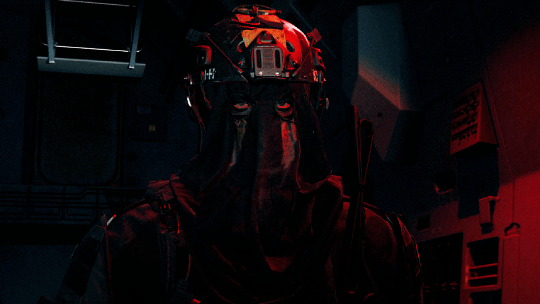


synopsis : rumours of an elite soldier have the base reeling. murmurings of 'monster' and 'freak'. what happens when you come face to face with the beast, only to find he's nothing like the whispers cautioned?
pairing : könig x f!reader
warnings : 18+ mdni. war, violence, graphic gory imagery, self-conscious könig baby, little bit of hand kink, basic bitch smut, p in v sex, unprotected sex, size kink, tight fit, sugar-sweet teeth rotting smut. this feels so basic… but I was struggling. please note, kilgore is a name previously linked to könig. I have used it as a codename 🙂
könig masterlist ୨୧ main masterlist ୨୧ join taglist ୨୧ ask


Warfare training preps for the inevitable—those moments you need to fire a weapon and how to camouflage and navigate enemy territory without detection. These inescapable horrors are 'another day in the office' by the time you enter the field, the prickling chill of fear driven out of your system. Whistling RPGs are not dissimilar to the scream of your Drill Sergeant's commands, the cold, hard ground of a dilapidated building no more uncomfortable than the standard-issue barracks mattress you would ease your wearing bones into after training.
Fear, beaten out of each man and woman that slipped on the uniform, held no commonplace in the military. Weapons, the call to war, brutality and sirens did little to raise the blood pressure.
Whispers held far more weight and struck unease into the hearts of even the most desensitised of fighters.

It was inarguable that each military in every country, at any time, had its own 'boogeyman'. Notorious fighters with absurdly large kill counts consisting of three digits that inevitably earned a bounty for their head, funded by the enemy—elite warriors who acquired a legendary reputation that ultimately became horror stories. The Ghost of Kyiv, The American Sniper Chris Kyle. These military cryptids kept their enemies awake at night, baying for blood and begging for the piles of bodies they left behind to stop growing.
After years in the SAS, you were beginning to think that there was no such thing. Each soldier was prolific, brutally efficient and inarguably the best of the elite forces. It was only upon entering Task Force 141, a genuinely mean feat, that you began to hear the unshunnable, hushed whispers of Kilgore.
“Did you hear about Berlin?”
“Kilgore? Yeah, heard he blew away a whole Al-Qatala cell.”
“Twelve of ‘em. The hostages were traumatised.”
These mumblings had persisted for months, consistently updated with crazy tales of whole garrisons blown to smitheries by this massacre-happy hulking mass of pure military precision. You, like the rest of 141, elected to ignore the gossip. This was a battlefield, filled with elite soldiers, not a school playground.
✰
Austrian mud splatters your camo-clad shins as you sprint through the forest terrain, your heart lurching in your chest as your rain-soaked fingers almost fumble your gun to the sodden ground. It’s freezing cold, the gush of rain edging on a flurry of sleet as lightning cracks above your head. Clothes soaked through, the moisture and icy wind form something of a ‘Pact of Steel’, working together to deep freeze the marrow of your bones.
As you slip in the mud again, heel skidding across the slick soil, you realise how dire the situation truly is. Separated from 141 during the firefight, you’d navigated north. You continued running for the safe house once discovering your coms had been dispatched by a stray bullet— that certainly would have ripped through your heart and dispatched you instantly if not for the layers of plastic settled over it.
Thunder rumbles in the clouds above, the boom reminiscent of a distant air strike. Slurried earth gives way beneath your feet as you push on. Exhaustion gnaws at your joints as you scramble for safety, bested only by the adrenaline that buzzed in your ear like a vicious drill sergeant. “Move it! Do you wanna die?! Well fucking move!”
You can hear their boots in the mud, the advancing Al-Qatala mercenaries chasing after you and shooting blindly at your heels, competing with the distance and dense foliage. You’re like an injured fox, feverish bloodhounds nipping at the end of your tail— what could they do with an SAS hostage? How much leverage would it buy?
Bullets whistle by your feet, the proximity of some enough to set your hair on end. They’re closing in, jowls dripping with slobber as they attempt to close their teeth around you. Just a little mor—
Crack.
Chaos erupts behind you, the thump of a body and a flurry of shouts. Panicked voices overlay each other in different languages, Urzik and Persian. You scramble for cover behind a treetrunk, the bark cutting at your palms as you brace for incoming fire.
"Kilgore!" Someone shouts, and your blood runs cold, eyes wide as they dart around the foliage for the legendary soldier. The whizzing of high-powered bullets persists, dropping Al-Qatala mercenaries into the mud beneath them. You hear the yelled orders, Urzik fighters urged to retreat.
You're unsure if one fails to hear the directive over the din of warfare, but you hear the advancing feet of the mercenary advancing on your position—the squelch of the mud beneath the rubber sole of his combat boots. You scramble with your weapon, checking the gun's safety and readying for a one-shot shoot-out.
When a bullet shreds through a victim's head, the sound is reminiscent of a watermelon being cracked open. It's a sickening crunch. A wet spray of warm blood cuts through the downpour of rain, splattering across your face. Some of it is solid, brain matter and shards of cranium.
It's not silent by any means. The rain continues to beat against the floor, pattering in the puddles that had formed in sole-shaped prints in the soaked earth. Cracks of thunder sound in the distance, and the droplets drum against the leaves in the forest's canopy. However, the sounds of the firefight cease.
"You can come out," a voice calls to you. Accented; Germanic. You hesitate for a moment, once again strengthening your grip on the gun you'd clung to. Your lungs strain with the sudden intake of breath, ribs crushed beneath your tac-vest. "Ghost sent me."
Easing your head out from behind the tree trunk, you marvel, somewhat horrified, at the gigantic, hulking build of the man who stood in the clearing. Fallen enemy combatants surround him, a blanket of corpses draped across the turbid forest floor. A black veil covers his face, and his equipment litters his tac-vest.
You'd be lying if you said you were unperturbed by the sight. Instead, fear lurches in the pit of your stomach, and you freeze in place. It's only when your eyes catch the crystal white slicing through crimson on the patch sewn into his shoulder that the airy voice, which certainly doesn't match his enormous frame, brings you a sense of safety.
"The safe house is ahead. We could get you warm–– clean you up?"
✰
Staring into the bubbling pan of water settled over the small fire, you relish in the warmth that creeps across your chilled body. Still, you're soaked, the damp clinging to the threads of your clothes. The scent of iron still assaults your nose, the water that you pick off the fire cautiously heated enough to scrub the blood from your face.
Kilgore, who informed you upon entering the safehouse preferred to be called by his name König, had seated himself in the corner of the large, relatively empty room. He looked ridiculous like this, attempting to compact his body into the crevice. You don't doubt it's an attempt to ease the nervous energy bleeding through your pores, your hands trembling as you attempt to dip the rag he had gifted you into the hot water.
"Did..." You swallow thickly, glancing up at the Austrian, "Did you tell the Lieutenant where we are?"
"Mhm-hm," he nods slowly, his jade eyes watching you from beneath the face veil. They're sharp and bright, contrasting so strongly against his uniform's muted and inky shades. "He's planning evac."
You scrub the gore from your face, wincing as you feel the shards of bone scrape across your face. König's eyes bore into you from the other side of the room, watching you struggle to remove what was left of the grime the rain had failed to wash away.
"I've-... Heard a lot about you," you speak to him, attempting to cross the vast space he had consciously put between you. His green eyes gaze at you, unblinking as he watches your expression. König is trying to read you, trying to comprehend how you feel. He's cautious, trying not to push you outside of your comfort zone.
"About Berlin?" He asks, and his voice is so soft that it reminds you of a child attempting to speak after being reprimanded by their parents–– wary of a second bout of raised voices.
"Yes," you mumble, dipping the crimson rag into the water before laying it across your skin again, "About Berlin."
König hums softly, casting his eyes to the aged, wooden floorboards. The woodlice have chewed through them, moss growing in some parts. You can see he appears uncomfortable, his knuckles white from the fists that form in his lap.
"I didn't mean to scare anyone," König admits in a whisper, catching you off guard. His shoulders sag slightly, and you see him pick at loose threads in the knees of his camo trousers.
"N-No... I meant to say how courageous it was," you point out, watching his fidgeting hands still suddenly, "You risked your life for those hostages... saved them singlehandedly. No one else would have done that."
Hesitant silence settles between you both, König considering your words carefully as he stares at his lap. You can't see his face, the veil concealing all but his eyes, though you're almost sure he's stunned by your comment. It takes him a moment to discern his next step, but he finally lifts his body from the wooden chair he'd pulled into the corner. It creaks with the shift in weight distribution, floorboards straining as he walks across the space towards you.
"You also saved me," you point out, watching him kneel before you, "Faced a whole cell..."
König steals your words from your mouth when his huge hand settles around the bloodied rag in your palm. He doesn't speak at; first, silence hanging between you once again as he dips the cloth into the water. Then, he soaks it until it drips, droplets pinging off the surface, and wrings it out. His dorsal muscles ripple beneath the backs of his palm, veins a ballpoint colour and standing out against his pale skin.
"Ghost asked me to," he mumbles, carefully holding the damp fabric and slowly reaching for your face. He gives you time to pull away–– you don't.
"You could have ignored him," you whisper, suddenly breathless with this proximity. He still towers over you, even balanced on his knees, head and shoulders slumped over you. You can see the ocean green of his eyes clearly, the halo of brown flecks that cover the circumference of his pupil. His eyelashes flutter when he blinks, so pretty and oddly feminine.
The pressure of the cloth against your skull is so delicate. König appears to be afraid of hurting you, gently brushing away the flecks of blood in your hairline. He shakes his head gently, considering your kind words. "What kind of man would I be, Leibchen?" his voice is airy, tone flimsy.
Those stunning eyes take a moment to gaze into yours, searching for your answer. Instead, all you manage is a weak shrug.
"Were... Are they afraid of you?" You whisper to him, struggling to find the words to broach a topic that appears to affect König so profoundly. It's his turn to answer wordlessly, offering an equally frail nod.
König takes your chin ever so gently in his hand, his palm almost eclipsing the lower half of your face, and turns your head in search of further blood-spatter. He sweeps the makeshift face-cloth over your skin, focusing on removing the grime altogether.
You'd heard the cruel rumours, the whispers of 'monster' and 'freak'. This König you'd met couldn't possibly be the same they uttered about maliciously. He held a child-like kindness, the brutality of the job seemingly doing little to chip away at his humanity. The same couldn't be said about the others.
"König," you whisper his name softly, watching as he continues to focus on clearing up your skin. His soothing touch smoothes across your temple now, removing some mud speckles. "Don't listen to them."
You can see his eyes soften, once again turning to yours as you reach to fiddle with the edge of his veil. Upon tracing the border between the pads of your thumb and forefinger, you find that it's t-shirt material, the zigzag seam stitching rough against your touch like barbed wire. "They haven't seen you like I have."
Those eyes gleam with amusement, little crows-feet creases forming in the corners. He's smiling, and your heart stutters against your chest.
"That right, Leibchen? I've had a mask on this whole time."
The gentle teasing lilt to his tone makes you lightheaded, urging you forward with your frankly ridiculous plan. You begin to lift the edge of his veil upwards. You take it slowly, his pupils dancing across the bare skin of your face as you reveal the point of his chin. His skin is equally as pale there, barely exposed to sunlight.
König doesn't stop you as you continue to lift the fabric from his face, exposing the curve of his lower lip. The skin there is soft and plush, little creases in the flesh making your heart thud awkwardly against your ribs. Finally, you stop at his cupid's bow, so soft and subtle it's barely there at all.
You can feel his gaze warming your skin as you trace his lips with your eyes. Hesitation holds you still, uncertain about the final step of this stupid plan. König, as ever, doesn't push you. Doesn't even breathe. When you lean forward, the tip of your nose brushing his own that still lay beneath the cloth, you hear a sharp yet gentle inhalation. It triggers goosebumps across your forearms, butterflies battering the pit of your stomach.
Soft. His lips are so soft when you mould your own to their shape. König's veil tickles the skin of your face when you kiss him, and you feel his gigantic hands settle on either side of your neck as he begins to return your affections. They swallow you, and your pulse leaps against his palm.
König smiles, and the kiss turns toothy and a little lopsided. You can't help but giggle nervously, his thumb tracing the curve of your jaw as he presses gentle pecks to the edge of your mouth. Despite his massive, intimidating frame, each action is deliberate and soft.
"... Are your clothes still wet, Schatz?" He's breathless despite his seemingly put-together appearance, his nose bumping yours as he interrupts your answer for another fragile kiss. "We could get you out of them."
✰
Your standard-issue military t-shirt slips and falls from the cot's mattress as König gently pulls your hips towards the edge. His fingerprints have already bruised into your thighs despite his attempts to be gentle. When he'd begun to panic, you told him not to worry–– he'd already bruised up your neck with his teeth and lips; what was a couple more?
Butterflying your legs out for him, König groans softly as you expose your glistening cunt for him. You're shy, covering your face with your hands as his fingers massage the soft, malleable flesh of the inside of your thighs.
"Schatz," he whispers, and you peer through the gaps of your fingers. König gazes down between your legs, green eyes gleaming as he positions his cock between your folds. "So beautiful."
It's ridiculous, you think, staring down between your legs. König is huge in every sense, the shaft of his cock thick and veiny and drowning out the seam of your sex as König shifts his hips forward to swipe the length of him across your weeping cunt. You can't help your mind running away with itself–– surely he needed a weapons license to carry that thing-?
A weak chuckle sounds above you, and you crane your neck to catch his eye. "I will take it slow, Schatz, I promise you."
You believe him. He had been so delicate with you this whole time, laying you down gently on the bed, careful when removing your gear and your clothes not to let the material snag on your nose or chin.
König's hand disappears beneath the face veil, spitting into his palm before he smoothes it over the head of his cock. He groans, eyelids fluttering beneath the mask as he drags his hand over the length. It's a pretty sight, you think, such a colossal man shuddering in bliss. When he sweeps his cock through your folds again, he carefully taps the tip of his dick against your clit to illicit a whimper.
"Mhmm, gentle. I promise you," he repeats, inching the tip of his cock down until it settles at your entrance. The soles of your feet find purchase on König's hips, and he massages your calves gently as he begins to inch into you at your nod of approval.
Oh, Christ.
König stretches you the moment he sinks inside. There's a delicious burn, one that has you lifting your hips with a whimper as you equally try to escape and dive into it. He's wheezing, eyes glued to where your bodies meet as he watches you flutter around his size.
"Ha-So tight, Schatz," he groans loudly, stopping when you firmly grip the bedsheets. He notes your expression of slight pain, the tears welling in your eyes as your body attempts to accommodate the intrusion. König seemingly can't help the flurry of apologies that fall from his mouth as he leans over you, settling his thumb against your clit in an attempt to ease you open. "Here. I want you to feel good, Engel."
The tremors in your thighs rattle against his hips as he circles your clit slowly. It's blissful, the sticky, warm arousal that blooms through your abdomen as he teases at the sensitive nerves. You arch your back against the mattress, moaning out his name breathlessly as he continues to inch his cock further into you. You barely notice when he finally settles the rest of him inside, wailing softly when it twitches and knocks something earthshattering inside you.
"O-Oh fuck––" you choke on your curse when König shifts his hips forward, jutting into your cervix and winding you suddenly. You probably look ridiculous, eyes rolling back into your skull as you claw at the vast expanse of his chest. You drag pink lines down the pale skin, drawing blood to the surface, but it does little to phase König this far along.
"Good, Liebling?" He murmurs, continuing to assault your clit. You can barely form a coherent sentence in response, drooling around a string of 'yes, yes, yes'. It's all he needs to find comfort in advancing, easing the length of him out of your weeping cunt before driving it back in at an achingly slow pace.
You want to slam your fist against his pectorals and insist he go faster, but you're not sure you're ready for it when he slides into you balls deep. It's as though he's settling among your lungs, filling you so good that you're seeing static in your line of vision.
The sound of a desperate groan from above barely brings you back down to earth, noting how he's staring at your face. His pupils are blown wide, almost devouring the green of his irises. It takes you a moment to realise you're drooling, his slow and steady pace already pushing you to a mindless edge.
"Oh-" you moan, digging your nails into his abs. They ripple beneath your touch with each deliberate thrust, and König hisses at the sharp sting and the crescent moon indents they leave behind. "F-Fuck, König- Too much-!"
"It's too much?" He wheezes, eyes searching your face. You desperately shake your head, terrified he'll pull away from you despite the inching arousal building at the base of your spine. Wrapping your legs around his hips, your heels press into the small of his back and hook him in place despite your protests.
It sparks something feral in the hulking man, his hips surging forwards and jolting you up the mattress. Your breath escapes you in a squeak, arousal soaring and buzzing thickly in your abdomen as König mumbles in German, his soft voice coming out all gritty under the strain of his exertions and bliss.
"Mhmmm- fuck-" you babble, eyes rolling again as you lift your hips to meet his. He sinks impossibly deeper, and your breath stutters as you feel the telltale tug of your orgasm. "Oh God- König, I'm-"
"Tell me," König whispers, rutting up inside you. He doesn't bother to inch out of you now, repeatedly battering so deep inside you that you struggle to inhale as your orgasm approaches fast.
"Hngngg- hah-ah- I'mgonna- c-cum-" you choke with each sudden thrust, his thumb quickening its pace against your arcing clit. Perhaps he shifts his hips slightly or reaches even deeper than before, but he brushes against something utterly debilitating, and you cum with a loud shriek of his name.
It bursts through you with blistering heat, your fingernails sinking deep into the curves of his bicep as you brace against the waves of bliss that crash over you. König keeps fucking into you, your walls squeezing tight around him as his thumb persists in its assault on your throbbing clit. Tears stream down your face, and König can't hold on much longer as you strangle his cock.
"Hah-Shit-" he slurs, his voice barely reaching your ears as he buries himself as deep as you can take him. He cums with a haggard moan, body trembling as his cock spurts inside of you. There's so much of it, too, leaking out of you before he even manages to move.
Both of you take a moment, both stunned by the overwhelming ecstasy. König doesn't bother withdrawing from your heat as he slumps beside you, turning you on your side to face him. He offers no words, burying his face into the crook of your neck and holding you tightly.
Your chest heaves as you suck in oxygen, skin prickling with heat as König encases you in his massive arms. You don't need the sheets, his body-heat burning hot beside you as you press your skin to his.
No words need to be said, you think. König had offered his feelings in the form of his reverent touches and delivered his thanks for your kindness in the delicate kisses he'd pressed to your lips as he carried you into the bedroom.
As you lay in the dark, settled into König's side, you trace your fingers over the curved scars, the bulletholes that have healed over against his ribs. They rise and fall beneath your touch, lungs expanding and deflating with each breath. It's a sobering moment, the thrumming of his pulse against your palm reminding you of his humanity despite the whispers at the base that had insisted upon his bestiality.
You realise those who speak cruelly of him and ruin his self-worth don't understand their impact. To them, he's a cryptid–– his very existence called into question. They hadn't seen him with their own eyes, only heard the mind-boggling tales of his startlingly impressive missions and monstrous size.
They hadn't felt his heart, the way it fluttered against your touch when you'd offered compliments. Hadn't experienced the soft plush of his lips pressing into your own in heartbreakingly sweet kisses. He was no monster.
And when Lieutenant Riley came for you the following day, choosing to ignore the marks left on your skin and the way you hesitated before climbing into the helicopter to offer the Austrian a gentle wave and a promise that you would return, you began the mission to rewrite his story. To change hearts and minds.
It didn't take long at all.
"Did you hear about Kilgore?"
"I did! He saved a member of 141. Incredibly brave–– I heard the situation was dire."
"She spoke very highly of him. Said we could count on him."
"I certainly wouldn't mind fighting alongside someone so dependable and courageous."

join the taglist here
Call Of Duty: Modern Warefare Taglist;
@mortallyuniquepeach @not-a-unique-snowflake-blog @crybaby-blue-blog @heart-atttack @pansa-1-san @maviee @emotion-no-hot-yes-hotel-trivago @s-u-t @ghostslynx @Malici0uspuff1n @solidly-indulgent @glitterypirateduck @gummyfang @bii-aan-ckaa @konigsblog @crissteetee @crissteetee67 @sylvanasthebansheequeen @akaym2 @im-still-alive2020 @exploremyworldsm @thriving-n-jiving @su57 @cabreezer0117 @cathnoneofyourbusiness @marygraceee @thatchickwiththecamera @grotzu @legend-o-zelda @simon-rileys-wife

#cod#könig#konig#könig call of duty#cod smut#könig smut#konig fanfiction#konig x reader#konig call of duty#konig smut#konig mw2#konig x you#könig x reader#könig x you#könig modern warfare#könig imagine#könig mw2#König smut#könig fanfiction#könig x oc#konig fanart#könig cod#könig x y/n#könig x fem reader#cod mw2#cod imagine#call of duty#konig x y/n#konig imagine#1k+ club
3K notes
·
View notes
Text
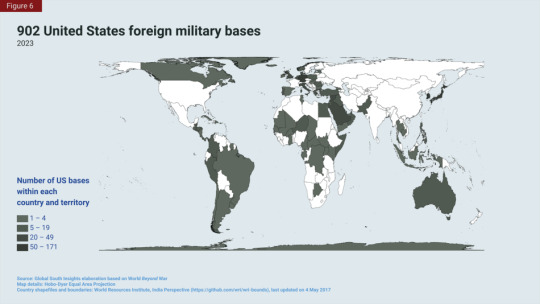
"In the twenty-first century, nothing is more indicative of U.S. empire than the global reach of the U.S. military. Much of this power comes from its approximately 800 military bases located in around eighty countries, accounting for about 95 percent of the world’s foreign military bases. No other country comes close to the U.S. level of worldwide military control. ... The United States probably has more military bases than any other empire in history, yet most Americans remain largely ignorant of their numbers and location. The history of these bases is an imperial history, tied to war, occupation, and military expansion. Wherever the U.S. military has gone bases have usually followed, giving the United States an ongoing presence long after the war or occupation is over.
The creation of bases has accompanied each wave of U.S. expansion. Military forts enabled continental conquest—255 in total—which functioned as foreign bases on land that was often still controlled by Native peoples. These forts operated as the military outposts of settler-colonialism and were targeted by Native peoples as violations of territorial integrity. The War of 1898 and subsequent occupation of overseas colonies resulted in a global basing system, and by 1938 the United States had fourteen military bases outside its continental borders in Puerto Rico, Cuba, Panama, the Virgin Islands, Hawaii, Midway, Wake, Guam, the Philippines, Shanghai, the Aleutians, American Samoa, and Johnston Island. ... The explosion of foreign bases during World War II would be followed by surges during the Korean War, the War in Vietnam, and the Wars in Afghanistan and Iraq, showing that wars and occupations continue to expand U.S. territory, even if the form of those acquisitions has shifted since the days of settler-colonialism and annexation. The contemporary number, which hovers around 800 to 900, is still an impressive network that places the military within striking distance of every spot on the globe. Historian Bruce Cumings calls the modern form of U.S. empire an 'archipelago empire,' small islands of U.S. control from which power can be projected anywhere in the world. It has become increasingly difficult to tell where the boundaries of the United States begin and where they end.
... For most U.S. citizens these bases are either invisible or accepted as a natural part of our national security apparatus. David Vine argues that Americans 'consider the situation normal and accept that US military installations exist in staggering numbers in other countries, on other peoples’ land. On the other hand, the idea that there would be foreign bases on US soil is unthinkable.'"
Stefan Aune, "American Empire," in At War: The Military and American Culture in the Twentieth Century and Beyond, 2018
Map source
650 notes
·
View notes
Text
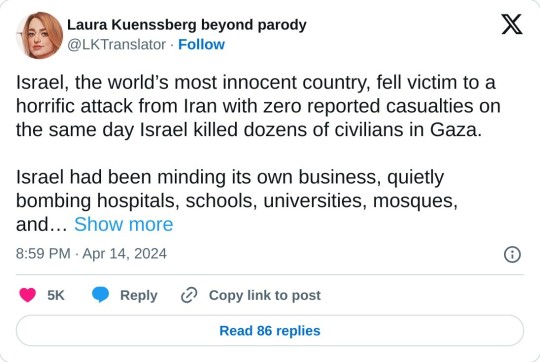
Israel, the world’s most innocent country, fell victim to a horrific attack from Iran with zero reported casualties on the same day Israel killed dozens of civilians in Gaza.
Israel had been minding its own business, quietly bombing hospitals, schools, universities, mosques, and an embassy, when the Iranian regime launched their outrageous attack for no apparent reason. Thankfully, the US and UK scrambled jets to defend Israeli airspace because it’s wrong to bomb countries in the Middle East, unless your name is Israel, in which case you can do all the bombing you want.
Every British and American ship in the region is now in grave danger and the risk of terror attacks on our soil has surely increased, but you will be relieved to know our countries have not benefitted in any way from our intervention. Personally, I can’t think of a better way for Israel to spend our tax money.
Our leaders have condemned Iran in the strongest possible terms, which is confusing because I thought we were supposed to remain ambiguous and say we’re investigating the matter when such an attack occurs. Perhaps this is one of those rules that only applies to Israel though.
When informed of the attack, a calm and rational Suella Braverman screamed: “WAR! I WANT WAR!” and when she’d stopped hyperventilating, she added: “This must be the end of western backsliding on Israel,” because she thinks we have not been sufficiently supportive of their genocide. Anyone who is not on the same side of the argument as Suella Braverman must ask serious questions about themselves.
Iran’s unprovoked attack involved giving Israel adequate warning and launching 30-year-old missiles, 99% of which were intercepted, and then saying the matter is closed unless Israel escalates further. The fact Iran would consider retaliating to further escalation from Israel shows just extreme these lunatics are.
Among Iran’s targets was the Israeli air base from which the missiles that struck its embassy were launched, killing 13 on April 1. As of yet, we have no indication as to why Iran carried out the attack, but we’re going to tell you it’s because they want to start World War III. Psychos.
Conspiracy theorists have suggested it’s actually Benjamin Netanyahu who wants escalation, but it’s unclear why the man who faces political oblivion, and possibly jail, would be incentivised to draw his allies into the fight and cause everyone to forget his many war crimes.
Israel, the country that definitely does not want war, has vowed an “unprecedented” response against Iran which will probably kill many more than zero people. If Iran expresses disapproval at Israel’s next mass murder, it’s because they’re trying to destabilise the region. At this point, we’ll have no choice but to help Israel do to Iran what we’ve spent six months helping them do to Gaza - launch precision strikes that destroy 70% of the buildings in the country and leave survivors living in tents.
Worryingly, we’ve just discovered at the most convenient moment that Iran has enough uranium to build 12 nuclear bombs. If it were true that Iran had so much weapon-grade uranium, it would be incredibly stupid to attack them, but we’re going to insist we must attack them because we’re weapon-grade idiots - and we think you are too.
Please just switch your brain off and accept what you’re being told, you simpletons! What matters is rich people can afford nuclear bunkers if this all goes horribly wrong. In the meantime, you can look forward to lots of exciting stories in the media about bringing back conscription and describing how you are likely to die in humanity's final war. Are you looking forward to radiation sickness and nuclear winter? Because they sound like brilliant fun! x
Thank you so much for reading! If you enjoyed this outstanding piece of journalism as much as I did, you can support my work here:
300 notes
·
View notes
Text
A lot of the response to Oppenheimer criticism has been "Clearly, you haven't watched the film, it isn't celebrating him! It shows all the things he did wrong" and I have to say... that's... still... missing the point of the criticism.
Oppenheimer occupies the same space as all the war films--like Dunkirk--that say "War is hell." While these films could and do skew towards "War is bad, let's avoid it," they still often... really end up saying "War is hell but let's pity the warriors and maybe consider the ways in which it was worth it."
The "war is hell" films end up completely missing the "anti war" mark because they choose to focus on the people waging the war, painting them in a sympathetic or at least humanizing light even when they're in the wrong. You feel bad when a soldier has to kill a kid on the other side--even if the kid is unarmed or begging for their life--because it's sooo sad that the soldier was driven to that point. And because... well, what else could they have done?
A much more effective "war is hell" film would be focused on the people whose land is ravaged by bombs. The civilians. The families. The people who lose their homes, their schools, their hospitals, their lives. Not in waging war but just in happening to live where war is happening. THEY are the real victims. They are not victimizers who might come to regret it (like warriors, like Oppenheimer) but like... actual victims.
In choosing to make a film about Oppenheimer and not about his victims--the people of New Mexico, the people of Japan, people forced into internment camps on US soil, and broader even then--you are saying "This man is responsible for great evil but let's humanize him too. Let's recognize that he didn't really have a choice or that maybe he felt bad about it. It was out of his hands."
Beyond humanizing him, it gives this history an element of inevitability. He HAD to do it. This HAD to happen. It's horrible that it happened but it was always going to happen.
If you focus instead on all the people victimized, you see all the reasons why it didn't have to happen.
And if Christopher Nolan isn't equipped to tell the story of New Mexican civilians who weren't given protective gear when the only jobs they had left were at all the labs or the stories of what a Japanese child does when his family is ravaged by American war crimes... he doesn't have to tell that story. The option isn't "Tell Oppenheimer or tell an intimate story he can't at all relate to." He could just... not tell this story.
Some stories really are not meant to have entertainment value. Some stories are not meant to be human stories but rather just facts on paper. Or told from the other human side. Sort of how like documentaries on serial killers often get it wrong but the fictionalized tv shows exploring ~what made them serial killers are ALWAYS wrong.
Some perspectives don't really need to be explored, is what I'm saying. Oppenheimer shouldn't be a grey or even dark protagonist. Some atrocities do not need to be humanized in any way, even if the humanity mostly culminates into "He was still wrong, though."
There are more efficient, less troubling ways to explore the motivation (the greed, the nationalism, the racism, the hatred, the warmongernig) behind bombings and wars like this. That would be better tools at realizing how we are repeating history, right now, in 2023.
That don't involve having to paint atrocities and the people behind them as grey or human or pathetic or pitiable.
773 notes
·
View notes
Text
Vagabond

Vagabond — wandering from place to place without any settled home
Poly Lost Boys x GN Reader
Synopsis: Forgiveness is a fickle thing. When four souls find each other, the world finds its equilibrium once more; until the absence of another tips the scale forever. What happens when a familiar face shows itself back at the boardwalk after twenty years of absence?
Warnings: slight angst, lots of historical information in the beginning
Word Count: 3k
By issuing the Declaration of Independence, adopted by the Continental Congress on July 4th, 1776, the 13 American colonies severed their political connections to Great Britain.
You had been ten during the conflicts between America and Great Britain, young and impressionable. Your family came with Puritans, who set sail to America back in 1630. Unlike the Pilgrims, who had left ten years earlier, the Puritans did not break with the Church of England but sought to reform it. All that happened before you were born; your ancestors had settled down and spread their roots into American soil.
You recalled little of the American Revolution; after all, you were very young back then, but you remember December 15th, 1791, vividly. Your mother couldn't stop crying that day, and your father had pulled out the oldest whiskey they had that day. America was finally severed from the tyrannical rule of George III.
You came to understand the significance of those dates more as you aged, growing into a strong individual as you helped your family on their farm. You never intended to marry; it wasn't something you had ever desired or looked forward to. The same year you had gotten married was the day you lost your immortality; both events are related but not necessarily connected. You were introduced to the vampiric community in New Orleans, a city that used the day to sleep off the mistakes you made throughout the rambunctious night.
You had lived through the formation of the Constitution of the United States of America in 1787 when the founding fathers sought to implement more structure into the now independent country.
The infamous whiskey rebellion. American drunks apparently were not too keen about Alexander Hamilton implementing a liquor tax to try and raise money for the national debt; asserting the federal government's power back in 1794.
Only nine years later, the Louisiana Purchase happened in 1803. The small land purchase for only $27 million created room for the states of Louisiana, Missouri, Arkansas, Iowa, North Dakota, South Dakota, Nebraska, and Oklahoma, along with most of Kansas, Colorado, Wyoming, Montana, and Minnesota.
Throughout the 1810s and 1830s, you had moved on from New Orleans and left for New York, seeking human connections and reconnecting with the younger generations. During that time, the Battle of New Orleans in 1815 and the Monroe Doctrine in 1823 seemed to fly past you.
Then, signed on February 2nd, 1848, the Treaty of Guadalupe Hidalgo finally brought closure to the Mexican-American war. At this time, you were no stranger to political conflicts anymore, and the stench of blood and sweat staining battlefields was, unfortunately, no stranger.
Life moved on regardless, no matter the horrid realities life provided. For a short while, life had finally come to a stand-still, guns tucked away as the world in America resumed its development. Until April 12th, 1861, Confederate troops fired on Fort Sumter in South Carolina's Charleston Harbor at 4:30 A.M., A day that changed America forever, the beginning of the American Civil War.
The Emancipation Proclamation, The First Conscription Act, The Battle of Chancellorsville, The Vicksburg Campaign, The Gettysburg Campaign, The Battle of Chickamauga, The Battle of Chattanooga, The Siege of Knoxville. The list continued, and the coppery smell of wasted humanity tainted the air, the wind carrying the cries of victims throughout the nation.
The war ended in the Spring of 1865. Robert E. Lee surrendered the last major Confederate army to Ulysses S. Grant at Appomattox Courthouse on April 9th, 1865.
The number of soldiers who died throughout those four years eventually got estimated to be around 620,000.
Only 47 years later, on July 28th, 1914, the Austrian Archduke Franz Ferdinand was assassinated, beginning the cruel trench warfare of World War I. In early April 1917, America aided the effort to join a war to end all wars. You had entered the war effort, like everyone capable at the time; from soldiers to nurses, everyone gave aid.
On November 11th, 1918, the war ended. Although the Allies won, you found no reason to celebrate. Not when mothers sold their homes since there wasn't a reason to have a multiple-bedroom house anymore, when graveyards overflowed with the dead, when people mourned their losses, when mothers' only answer to their missing sons was a notice declaring their child missing in action.
The stock market crashed in 1929, kicking off the Great Depression that would last for more than a decade.
On September 1st, 1939, Germany invaded Poland. Kicking off World War II and beginning one of the most brutal warfare's, Blitzkrieg. On May 8th, 1945, Germany surrendered. After the atomic bomb was dropped on Hiroshima and Nagasaki, Japan surrendered on September 2nd, 1945, and the Second World War came to an end.
The war ended, and the surviving soldiers returned with missing limbs and broken spirits. You were a firm believer that humans were not meant to witness so much death; it tainted them; it dulled them. Although you were a vampire, a creature supposedly made for horror, you could not forget what you had witnessed in only the span of 21 years.
You were 201 years old now, relatively young in the grand scheme of time, but you had lived through a few of the greatest horrors the world had ever seen.
189 years of traversing the lands, you watched grow in a desperate search to find one of your own. Since you were turned and left New Orleans, you had not met a single vampire. You watched with sorrowful wisdom in your eyes as the world passed through you, virginity in people's expressions you wish you had. A gaze untainted by warfare, civil unrest, and brutality.
Although you have met the occasional human to brighten your own world, it did not cure you. Your search was desolate—fruitless.
Your feet had carried you to Santa Carla, the year now being 1963, and just as the five stages of grief had settled on acceptance. You bumped into a group of four rambunctious bikers that would change your life forever. That had been the first time you had met, and you had continued to live together, going on to live through the Civil Rights movement and grieving the assassination of Martin Luther King, Jr.
But on August 12th, 1967, you left Santa Carla. Your absence is only justified by a delicately written letter standing in your place. You had grown to love the boys, but you had lived differently compared to them.
Marko and Paul were younger vampires than you, having been turned while The Great Depression was bulldozing America. Dwanye had been older, abandoning his immortality in the 18th century along with David. All of them possessed the innate ability to move on from the past, a talent you, unfortunately, did not possess.
No matter how hard you tried, you could not find peace or excitement in the future. The uncertainty corrupted you, tormented you and your experiences, so you left. Not with the intent to abandon but to sort out whatever you had to sort out. Away from the prying eyes of those you loved, those who you did not want—couldn't disappoint.
Santa Carla, the town you had never been able to forget. It was 1987 now; twenty years had passed since you had seen the four vampires. You had missed them—a melancholic weight having nestled its way into your heart ever since you left. You regretted the way you had left through a simple letter. A cowardly move; you were wise enough to understand that. But at the time, you couldn't bring yourself to say it to them. How could you? Look someone in the eyes, someone like you—your own pack that never did anything but love you—and tell them you were leaving?
You didn't have the heart, and if you were a little more honest, you didn't have it now, either. But you missed them more than your hurt pride by walking what felt like a walk of shame as you wandered around the busy boardwalk. One thing you never could get used to was the constant shift in fashion, it felt like the ins became the outs overnight, and you never were able to keep up with it.
Bright colors were the most fashionable now, with teased hair and loud makeup. You enjoyed it, your knowing eyes watching over the crowd. The smell of hairspray permeated the air, wafting towards you as you passed people. Bulky and oversized clothes were spotted throughout the crowds, some men and women wearing specific member-only jackets. Ah, it seems the surfer nazis still haven't given up on Santa Carla yet.
The amusement park was new; back in 1867, the boardwalk had small shops littered around—like a market. Originally it mostly sold food and groceries, fish caught fresh from the sea, and farmers selling their produce.
How has the pier changed so significantly? If it wasn't for the bold, attention-seeking sign that said Santa Carla Boardwalk; you would've thought you were at the wrong address. But stepping on those old wooden floorboards of the pier that occasionally creaked or sunk under your feet was an all too familiar feeling. The smell of salt, rotting seaweed that had washed onto the shore, and the fresh street food made you feel all too at home.
It felt like you had never really left.
Your appearance had changed quite a bit since you left Santa Carla, so you didn't expect either the boys or Max to really recognize you. But although you were willing to stay under the radar for the boys, Max was another story. He was a head vampire, a coven leader, and therefore needed to be notified of your presence.
Entering Max's video store made you feel nostalgic, the same old grimy bell still hanging atop the doorframe signaling your arrival; you had been the one to put that there to originally annoy Max. You were surprised he kept it. The wooden floorboards and furniture gave off a distinct, homey smell. You had been there when the store was built, and the shiny coating across the floors now had grown mat, occasional wood panels brighter in color than before.
"I never thought I'd meet the day I saw you walk through those doors again."
Turning around, you met the stern gaze of Max. His outfit made you smile, a desperate attempt at blending in with the crowd. Max was always a stickler for blending in; if he had no intention of turning you; you had no business knowing who; or rather what, he was.
"It's good to see you."
"I'm flattered, but I doubt that I am the sole reason you returned." Max always carried that knowing tone, as if he's watched out every move you'd make before you made them. It reminded you that Max had a coven before the boys and you, one he rarely conversed about. Perhaps Max really had seen this turn out before, but analyzing that surprised expression, you could only assume who had left never did come back.
"How right you are," You sighed, shoulders dropping as you hopped onto the cashier counter. It was before opening, meaning you and Max had some time to chat privately.
"Twenty years is a long time," Max hummed, a low and almost chiding tone. "What made you come back?"
"To us, it isn't," You weakly argued back. The cumbersome feeling, or rather an awareness that you were in the wrong, was nearly unbearable. You were smart enough to understand that denial was a fruitless endeavor, and yet you couldn't help but let those desperate attempts escape you.
"For people waiting for you, it's an eternity." Max sighed in a calm but chiding tone. Although Max never did have to scold you the way he did with the boys, from not committing arson to preventing fights. Max instead focused his guidance towards you on a more emotional level, the morality; a bit ironic being taught by a vampire—but he did his best.
You glanced outside, through the glass walls of Max's shop, watching the bustling crowd pass you. Twenty years to a vampire was nothing, but somehow the short span of time felt arduous. Why did you come back?
"I never intended on staying away forever. I knew that when the time was right, I'd return." You explained, stealing a quick glance at Max. The older man had a frown etched onto his face, eyebrows furrowed as his own gaze lingered on the rambunctious humans outside. So unaware of the constant and unrelenting passage of time. It was cruel to be immortal; the passage of time no longer hindered you. But emotions are bendable and are the only aspect of ourselves that remains from who we were. Emotions were mortal.
"Santa Carla has changed, Y/N. It is not what you left behind; they are not the same as they were alongside you." Max recalled, his voice disapproving.
You knew Max was correct; you knew deep in your wrenching and twisting gut. You jumped off the counter, your feet hitting the floor like gravity had shifted around you, sinking your body into the floor. "I know," you knew; perhaps the boys didn't even want to see you; they could curse you out and send your name to hell for all eternity. They deserved to do it too.
But they loved you once, and perhaps you can't help shake the feeling that they might love you again this time too.
Max sighed, walking over to his front door and twisting the closed sign around, and pronouncing the store now open. Each tap of his foot, synced with his steps, was like a thundering echo inside you. It prompted you to get up and to provide closure for the others. You reach the door, opening midway before Max leaves you with some parting advice.
"I hope you find what you came here for, Y/N. But the time might be right for you now, but it might not be for them."
You nodded, not looking back as you walked out of the store. The air was warmer, humid from the ocean breeze mixing into the air, the notorious assassin for any styled and teased hair due.
Laughter was one of your favorite sounds. As cliche as that might sound, it felt rejuvenating to hear. Whether it was a loud cackle mimicking the call of a hyena or a high-pitched wheeze or whistle. There was a beauty in people's expressions, how their noses tended to scrunch up, or how others held their stomachs and nearly doubled over. Laughter was infectious, and you loved observing the dopamine spread to others. Strangers connecting over a similar sense of joy; there was a beauty in it.
The boardwalk was filled with it, people brushing shoulders against shoulders as they walked. Groups cackling and shoving each other as they enjoyed the youngness of the evening. Music booming from different directions, punks blasting the newest rap or metal music, hippies tuning out to a gentle jam, but the loudest seemed to be a distant concert down the boardwalk and closer to the pier. Like a bee sensing some honey, you followed. Dodging the occasional passerby, ducking out of the way from shop owners lugging their merchandise around.
The music got louder, and a small thread of excitement seemed to push you further, faster. Your small stroll transformed into a quickened step, your ears guiding you and your eyes following the crowd. The music was loud; a tight smosh-like pit had formed before the stage where people grind and brushed against each other to the beat of the music.
Looking around, you scanned the faces of teenagers and young adults. There was an eager but dreaded nervousness to your gaze at the thought of seeing a face that looked familiar. But it wasn't your eyes that caught their presence, but rather your sense of smell.
Copper.
Although it was harder to pick up when the wind stills its prancing, the occasional breeze led you further towards the pier. Away from the smosh pit, and where people stood to enjoy the music but not risk getting mulled over by a hormonal teenager.
There they stood, strikingly familiar. Although some of the fashion had changed, most of their originality stayed intact. That tiny red flag tied around Dwayne's waist was something the two of you had stolen from a stingy bar owner back in 1964; Markos jacket still had all too familiar patches sewn into its denim fabric; Paul still wore those bracelets you gave him, and David wore the most prominent reminder of you, his oversized coat.
The wind picked up around you, a cold and mocking breeze flowing through your hair and betraying your presence to the four men you had left behind all those years ago. One by one, heads lifted, smiling ceased, and laughter died. Although you had spent years preparing yourself for this moment, nothing felt so gut-wrenchingly real than standing before them.
How do you look someone in the eyes after you've abandoned them?
How do you move past that moment when the world around you stills and halts. When you lose yourself in the blear of the world when mortality reaches its hand around your heart and squeezes. A vice-like grip, a feeling blooming within your chest so heavy–so unspeakable. When you see those eyes, recognize the sorrow behind them and realize you were the perpetrator. You were the one who put that agony, that sadness there.
The burden of your actions ties itself around your throat like a noose, tight and unyielding, as you realize the cruelty was done by none other than yourself. And there is no way, in any shape or form, you could reverse the damage you've done. Pain is immortal, it might yield to its throbbing, but it never forgets.
A world with your boys back in 1967 exists now only in your memory. The four men, cold as the autumn waters, were your reality now.
"Hello, boys."
#the lost boys 1987#poly lost boys x reader#tlb#the lost boys marko#the lost boys david#the lost boys dwayne#tlb x reader#tlb paul#tlb david#tlb marko#tlb dwayne#dwayne tlb#paul tlb#marko tlb#david tlb#laddie tlb#star tlb#the lost boys star#the lost boys x reader#the lost boys#tlb fanfic#tlb x you#tlb headcanons#tlb imagine#the lost boys paul#the lost boys michael#tlb michael#michael x reader
467 notes
·
View notes
Text
Obviously it's not exactly a privilege to be obligated to pay into an oligarchical, murderous war machine for your entire working life, but I do think in their hurry compare to other "developed" nations, American leftists are wayyyy too fast to dismiss the huge global privilege that inborn American citizenship is. The quality of life for even the most desperately poor American far exceeds the QOL for average workers in many counties (the irrevocable right to emergency healthcare regardless of citizenship or even residency alone...). The almost total protection from war or invasion on your home soil. The access your passport gives you to just about any country in the world, and the protection you will get from our state department while there essentially no matter how stupid you are about it. The abundance of food available at all times due to subsidies and back storages. The power of our currency on the global stage.
I'm not #proudtobeanamerican by any stretch of the imagination (these are all products of empire, violence, colonization, slave labor) but I side-eye any serious leftist who wants to minimize the way this has influenced their perspective and experiences. Just as white people will have to lose real power and security to achieve racial justice and men will have to lose real power and security to achieve sex justice, any meaningful economic revolution will literally necessitate huge changes to American comforts and habits of consumption.
676 notes
·
View notes
Text
"Lifting a rock only to drop it on one's own feet" is a Chinese folk saying to describe the behavior of certain fools. The reactionaries in all countries are fools of this kind. In the final analysis, their persecution of the revolutionary people only serves to accelerate the people's revolutions on a broader and more intense scale.
[...]
The United States has set up hundreds of military bases in many countries all over the world. China's territory of Taiwan, Lebanon and all military bases of the United States on foreign soil are so many nooses round the neck of U.S. imperialism. The nooses have been fashioned by the Americans themselves and by nobody else, and it is they themselves who have put these nooses round their own necks, handing the ends of the ropes to the Chinese people, the peoples of the Arab countries and all the peoples of the world who love peace and oppose aggression. The longer the U.S. aggressors remain in those places, the tighter the nooses round their necks will become.
[...]
Imperialism will not last long because it always does evil things. It persists in grooming and supporting reactionaries in all countries who are against the people, it has forcibly seized many colonies and semi-colonies and many military bases, and it threatens the peace with atomic war. Thus, forced by imperialism to do so, more than 90 per cent of the people of the world are rising or will rise in struggle against it.
— Quotations from Chairman Mao Zedong
326 notes
·
View notes